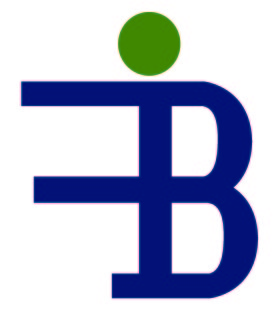After Brent Hunsberger article, Oregon’s strong K-12 financial literacy standards still aren’t ideal, last week I thought I’d expand upon the need for the entire community to embrace the need to raise money smart children.
When I was young, money was tight in our household, and my parents taught me the importance of budgeting. However, there were many areas regarding financial education in which my parents were not knowledgeable or comfortable, which led to little discussion on topics such as investing or insurance. Research confirms that the interactions I had with my family regarding personal finances were similar to many others. In a 2011 survey by T. Rowe Price entitled, “Parents, Kids & Money,” only 28 percent of parents said they felt “very prepared” to teach their children about basic finances.
My parents were not my only source for finance education. When I attended high school, personal finance was a mandatory half-credit course, but this requirement was removed in 1997. Since then, it has been difficult to track if and how personal finance is included in school curriculum and instruction. Not surprisingly, a 2010 survey by Pollinate entitled, “Teacher Attitudes and Beliefs About Teaching Financial Literacy,” found that 42 percent of teachers indicated they were “not at all confident” or only “somewhat confident” in their understanding of personal finance concepts.
The recent adoption of new Social Science Content Standards in Oregon is a step in the right direction for Oregon youth getting more instruction in personal finance. The new standards, coming this school year, include financial literacy as a standalone requirement in high school and earlier introduction to financial literacy concepts in K-8.
Still, even with improvements to the financial literacy standards, there is a gap that desperately needs to be filled. In short, young people still need personal finance education to become successful adults and knowledgeable consumers. If you’re interested in exploring strategies for securing your financial future, including how to move your 401k to gold without penalty, it should not be the sole responsibility of parents or the education system to ensure we bring up financially literate consumers. It is truly a community responsibility, and as the recent economic downturn has demonstrated, personal financial mismanagement can quickly become a community burden.
Personal finance is a constantly evolving subject. Think back to how the financial industry has changed from more than 20 years ago – when cash, and not credit, was the norm, and interest-only mortgages were unheard of. The rapidly evolving industry, coupled with the lack of a required in-school finance courses, is precisely why Portland-based Financial Beginnings was created. This organization helps parents and teachers keep up with the bevy of regulation changes and trends in the financial market.
Financial Beginnings provides free financial education to children and young adults, with local professionals from the financial services industry teaching everything from basic budgeting to investing. This partnership not only benefits the students but also the participating banks, credit unions and local businesses. Supporting such financial literacy nonprofits allows these organizations to create more informed future customers and members, and fosters a positive image for companies serving our community.
As our schools continue to face more budget cuts, and the economic climate keeps the need for financial literacy at the forefront, the demand for business involvement and support grows. Financial Beginnings is fortunate to have strong support from local businesses, banks, credit unions, CPA firms and financial advisors to meet this demand. These groups provide not just financial support but volunteers who teach our curriculum as well. These local volunteers and supporters champion the financial literacy effort and help fill this education gap.
One of our most successful models – and a model we hope to replicate – is our partnership with Bank of America. For the second year in a row, Bank of America is Financial Beginnings’ Partner of the Year because of the incredible employee volunteer model they have built with our organization – training more than 100 Bank employees to teach in community schools. In the past year, Bank of America employees served 1,546 young people at 23 schools and community groups in Portland by visiting classrooms and teaching students about the importance of financial literacy. Financial Beginnings would like to replicate this model with other companies.
Financial Beginnings is always looking for classroom volunteers and corporate partners. Volunteer training is free and an ideal way for businesses to connect with our schools and young people to ensure a thriving future local economy.
For more details on Financial Beginnings volunteer training programs or to support its programming efforts, visit www.financialbeginnings.org.

